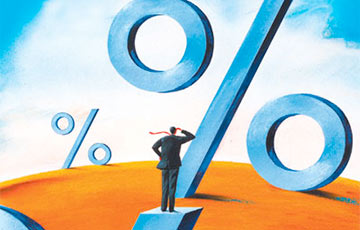Domestic Public Debt of Belarus Hits Records High. External One Will Grow More Expensive
2- 12.04.2021, 8:30
- 6,618

The debt burden on public finances will grow.
Domestic public debt is reaching new highs in 2021. The external debt is not growing yet. These processes are related to the economic and political situation in the country. It is likely that the new debts will be more expensive than the previous ones, writes naviny.online.
Why the public debt will continue to grow
Last year, some indicators of Belarus' external debt, used as an indicator of the country's solvency, deteriorated.
It was a consequence of several factors - reduction of exports, foreign currency revenues and gold and foreign exchange reserves.
As a result, the calculations of the central bank show the criteria of Belarus' solvency have not changed for the better. The ratio of gross external debt to GDP increased from 63.1% to 70.2% in 2020.
In the same period, the ratio of gross external debt to annual exports of goods and services increased from 97% to 113.8%.
Meanwhile, the ratio of international reserves to short-term external indicators deteriorated as well. In early 2020, international reserve assets covered 92.2% of short-term external debt. In early 2021, they will cover only 73.3%.
Nevertheless, despite the worsening solvency indicators, Belarus intends to continue borrowing.
Firstly, it is necessary to find money to pay off the old debts. Secondly, the republican budget deficit may reach 3.5% of GDP this year, and money is also needed to finance this deficit.
Therefore, there will be new external borrowing.
"Organizational measures have started to ensure the possibility of placing bonds in Russia. Besides, one develops the possibility of borrowing from international financial institutions in 2022; negotiations are in an active stage," said Deputy Finance Minister Volha Tarasevich in March.
However, there have been no major deals to attract foreign loans in 2021. But the domestic public debt is increasing and hits new records high (in ruble terms).
Early this year, it was 9.88 billion rubles. On February 1, it reached a record high of 11.63 billion rubles. In late March, the Ministry of Finance reported that domestic public debt had reached a new maximum of 11.74 billion rubles by March 1.
So far, no one has officially explained why the domestic public debt is breaking records high this year. These dynamics are based on decisions that have been classified. However, unofficial information says the growth of the internal public debt is due to the restructuring of debts of the Belarusian Steel Works.
Most likely, it was a forced measure. According to the audit report, the plant's liabilities exceeded its non-current assets by 2 billion rubles in early 2020. In this regard, the auditors pointed to "significant uncertainty" about the BMZ's ability to continue operations.
The increase in domestic public debt is comparable to the debt load at the BMZ, so the government likely had to give a helping hand to the metallurgical company.
The new debts will be more expensive than the previous ones
Belarusian economists suggest that other enterprises may also need help from the state, which means that the flow of corporate debt into the public debt will continue.
"The growth of domestic public debt comes from the fact that in 2021 the state took over the function of guarantor of public sector debts. If this scheme remains, the domestic public debt will continue to grow. However, the transfer of corporate foreign currency debt to the government is not a harmless story, as the budget takes the currency risks, as well as the risks of insolvency of state enterprises," said senior researcher of the BEROC Economic Research Center Dmitry Kruk in his commentary.
Another key trend in public finance is an increase in the cost of future borrowings.
"Belarus is losing contact with the Western world. Now, our country can rely mostly only on Russian money. Given the vulnerable position of Belarus, the cost of borrowing will increase," suggests researcher of the BEROC Economic Research Center Maria Akulova in her commentary.
At the same time, the experts believe that it will affect all residents of Belarus.
"The negative forecast of the international rating agencies on the sovereign credit ratings of Belarus will increase the potential cost of borrowing both for the corporate sector and the government," said Kruk.
According to the economist, it doesn't meet the plans previously voiced by the government.
"Previously, the Belarusian authorities used to say that the new borrowing would be cheaper than the previous ones. But now we can see the opposite - new debts may be more expensive than the previous ones. It will be a negative signal for Belarus," believes Kruk.
Economic theory suggests that to prevent the growth of the debt burden on the economy, the cost of sovereign borrowing should be comparable to economic growth.
However, Belarus is unlikely to achieve it under the current political and economic situation, experts believe.
"International financial institutions predict long-term economic growth in Belarus at around 1%. Under such conditions, to borrow from the market at rates of 6-9% per annum means to increase the debt burden on the economy," said Akulova.
To avoid it, Belarus should accelerate economic growth and reduce the cost of borrowing.
"To succeed in it, Belarus needs to build good relations and learn to conduct a dialogue with the whole world, not only with Russia," Akulova summed up.









